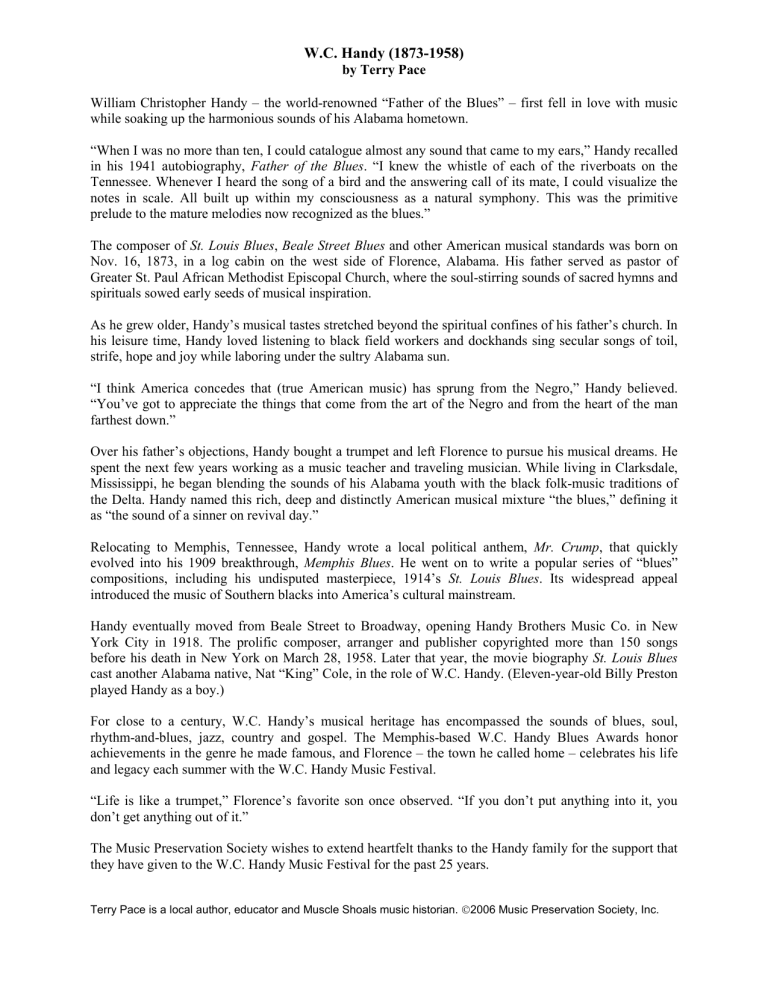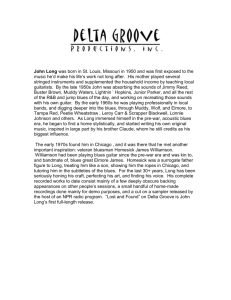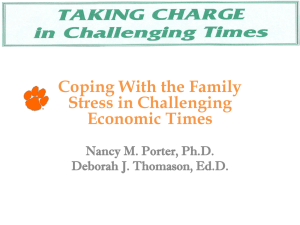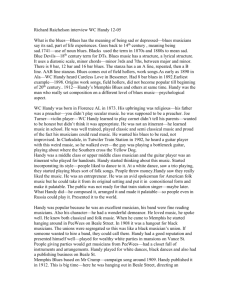W.C. Handy (1873

W.C. Handy (1873-1958) by Terry Pace
William Christopher Handy – the world-renowned “Father of the Blues” – first fell in love with music while soaking up the harmonious sounds of his Alabama hometown.
“When I was no more than ten, I could catalogue almost any sound that came to my ears,” Handy recalled in his 1941 autobiography, Father of the Blues . “I knew the whistle of each of the riverboats on the
Tennessee. Whenever I heard the song of a bird and the answering call of its mate, I could visualize the notes in scale. All built up within my consciousness as a natural symphony. This was the primitive prelude to the mature melodies now recognized as the blues.”
The composer of St. Louis Blues , Beale Street Blues and other American musical standards was born on
Nov. 16, 1873, in a log cabin on the west side of Florence, Alabama. His father served as pastor of
Greater St. Paul African Methodist Episcopal Church, where the soul-stirring sounds of sacred hymns and spirituals sowed early seeds of musical inspiration.
As he grew older, Handy’s musical tastes stretched beyond the spiritual confines of his father’s church. In his leisure time, Handy loved listening to black field workers and dockhands sing secular songs of toil, strife, hope and joy while laboring under the sultry Alabama sun.
“I think America concedes that (true American music) has sprung from the Negro,” Handy believed.
“You’ve got to appreciate the things that come from the art of the Negro and from the heart of the man farthest down.”
Over his father’s objections, Handy bought a trumpet and left Florence to pursue his musical dreams. He spent the next few years working as a music teacher and traveling musician. While living in Clarksdale,
Mississippi, he began blending the sounds of his Alabama youth with the black folk-music traditions of the Delta. Handy named this rich, deep and distinctly American musical mixture “the blues,” defining it as “the sound of a sinner on revival day.”
Relocating to Memphis, Tennessee, Handy wrote a local political anthem, Mr. Crump , that quickly evolved into his 1909 breakthrough, Memphis Blues . He went on to write a popular series of “blues” compositions, including his undisputed masterpiece, 1914’s St. Louis Blues . Its widespread appeal introduced the music of Southern blacks into America’s cultural mainstream.
Handy eventually moved from Beale Street to Broadway, opening Handy Brothers Music Co. in New
York City in 1918. The prolific composer, arranger and publisher copyrighted more than 150 songs before his death in New York on March 28, 1958. Later that year, the movie biography St. Louis Blues cast another Alabama native, Nat “King” Cole, in the role of W.C. Handy. (Eleven-year-old Billy Preston played Handy as a boy.)
For close to a century, W.C. Handy’s musical heritage has encompassed the sounds of blues, soul, rhythm-and-blues, jazz, country and gospel. The Memphis-based W.C. Handy Blues Awards honor achievements in the genre he made famous, and Florence – the town he called home – celebrates his life and legacy each summer with the W.C. Handy Music Festival.
“Life is like a trumpet,” Florence’s favorite son once observed. “If you don’t put anything into it, you don’t get anything out of it.”
The Music Preservation Society wishes to extend heartfelt thanks to the Handy family for the support that they have given to the W.C. Handy Music Festival for the past 25 years.
Terry Pace is a local author, educator and Muscle Shoals music historian. 2006 Music Preservation Society, Inc.






